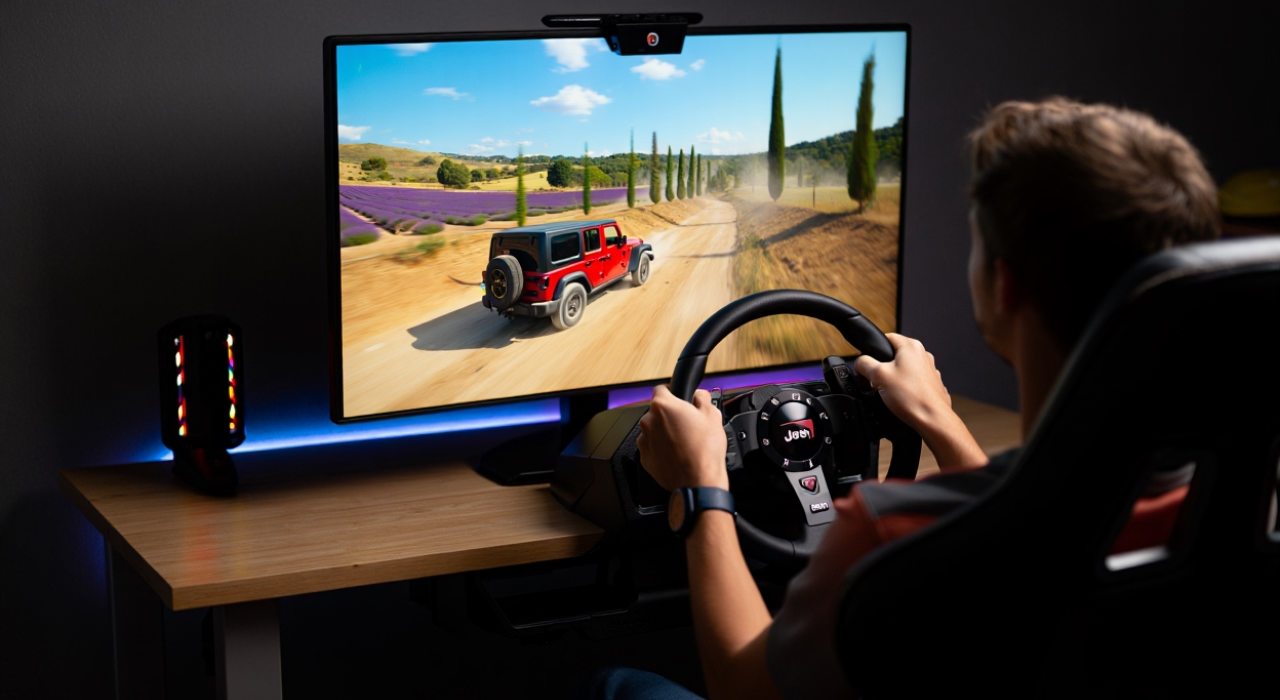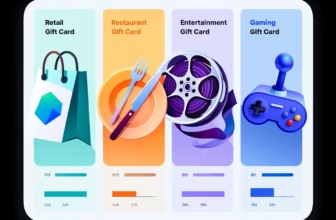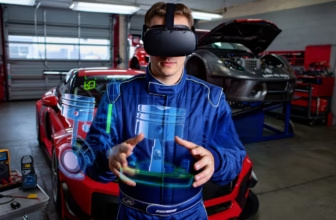
Exploring the wild trails and scenic landscapes of Provence in a Jeep is more than just a road trip — it’s an adventure that fuses freedom, rugged exploration, and authentic off-road culture. But what if you could channel that off-road spirit into your passion for sim racing?
In this article, we’ll show you how the legendary Jeep ethos meets modern racing simulators, creating a new dimension for both real-world and virtual drivers.
The heart of off-road adventure
Provence, located in southeastern France, offers a landscape that’s perfect for Jeep off-roading. From the rocky trails of the Luberon to the aromatic fields of lavender near Valensole, Jeep owners know the thrill of navigating terrain that most vehicles wouldn’t dare to cross. The region’s culture values independence, adventure, and closeness to nature — three pillars that resonate deeply with both off-road fans and competitive sim racers.
Studies have shown that outdoor adventure activities like off-roading lead to improved problem-solving skills, increased mental resilience, and stronger teamwork among participants. Research specifically examining off-road driving experiences demonstrates enhanced cognitive function, reduced stress levels, and improved focus and mindfulness during challenging navigation tasks. Jeep drivers in Provence frequently cite these benefits when comparing their experiences to the collaborative and competitive spirit found in online racing communities.
Why the Jeep spirit matters in sim racing ?
Sim racing — using advanced driving simulators to compete on virtual tracks — is rapidly growing in popularity. What sets sim racing apart is its accessibility: you don’t need to own a racecar or even leave your home to experience the thrill of high-speed competition.
But what do Jeep owners bring to sim racing? The answers lie in core attributes like adaptability, determination, and resourcefulness — traits honed on the unpredictable trails of Provence. The skills needed to conquer real-world obstacles, such as navigating steep climbs or muddy ravines, translate surprisingly well into virtual settings where you must adapt to changing conditions and unpredictable track environments.
Research on motor skill transfer from real-world to virtual environments shows significant positive correlations, with studies demonstrating that outdoor driving experiences improve reaction times and decision-making in digital racing platforms. A comprehensive analysis of skill transfer found that participants with real-world driving experience showed better adaptation rates in virtual racing simulators compared to those without such experience.
Building your sim racing setup, Jeep-style
If you own a Jeep, you’re no stranger to customization. From lift kits to reinforced bumpers and specialized tires, making your vehicle truly yours is a key part of the Jeep lifestyle. That same approach applies to building a sim racing rig.
Sim rig essentials inspired by Jeep
- Durability: Invest in high-quality, long-lasting gear. Just like your Jeep parts must withstand tough terrain, your racing pedals, wheelbases, and cockpit should be robust to survive marathon racing sessions.
- Versatility: A Jeep handles urban streets and wild trails with equal ability. Seek adjustable components like multi-position seats and mod-able steering wheels so your sim rig adapts to different racing styles.
- Customization: Don’t be afraid to get creative. Add off-road-inspired touches, such as textured grip surfaces or rugged visual accents, to infuse your physical gaming setup with Jeep DNA.
Research indicates that personalized gaming setups improve immersion and long-term engagement for sim racers by significant margins compared to standard configurations. Studies show that drivers familiar with customizing real vehicles demonstrate superior ability to optimize virtual racing equipment for peak performance.
Provence’s trails: Turning real terrain into virtual circuits
One of the biggest trends in sim racing is recreating real-world environments. Provence’s signature trails — winding rocky paths, dense forests, and sweeping valleys — aren’t just places for Jeeps; they’re ideal inspiration for virtual racing circuits.
Studies involving virtual recreation of familiar landscapes show increased user engagement and improved navigational skills among simulator users who recognize the terrain. Research demonstrates that drivers familiar with specific geographical areas perform better on virtual tracks modeled after those locations compared to unfamiliar environments.
Jeep drivers can use mapping software and terrain generators to design their own Provence-inspired tracks, blending local knowledge with gaming creativity. This approach not only creates more engaging racing experiences but also helps maintain the connection to nature that makes off-roading therapeutic, even in virtual form.
The off-road mindset: Thriving on challenge
Both off-road Jeeping and sim racing demand a special mindset. It’s about perseverance, creative problem-solving, and unshakable focus. When you’re navigating a technical trail in Provence, quick thinking and adaptability can mean the difference between a triumphant summit or a stuck vehicle. In competitive sim racing, real-time decisions about overtaking, tire strategy, and evasive maneuvers mirror the fast-paced logic of off-road adventures.
Extensive research reveals significant correlations between outdoor adventure activities and enhanced cognitive performance in virtual environments. Studies specifically examining attention patterns show that experienced off-road drivers allocate visual attention more efficiently during virtual racing, demonstrating improved strategic decision-making and reduced cognitive load under pressure.
The psychological benefits of off-road driving include enhanced self-confidence, improved stress management, and stronger problem-solving abilities — all directly transferable to competitive sim racing scenarios.
Jeep and sim racing communities: Building bonds
Whether you prefer Sunday meetups at a hilltop restaurant or evening races on an online circuit, both Jeep drivers and sim racers value camaraderie. Online racing platforms increasingly host specialized “off-road spirit” events inspired by Jeep culture, where participants support each other and strive to overcome tough, unpredictable environments together.
Research consistently demonstrates that robust social connections in hobby groups (both virtual and real-life) contribute to greater satisfaction, improved skills, and long-term commitment to activities. Studies show that participants who engage in both outdoor adventures and virtual racing report higher satisfaction levels and stronger community bonds compared to single-activity enthusiasts.
Cognitive benefits: The science behind the connection
The link between outdoor activities and enhanced brain function is well-established in scientific literature. Recent research shows that children and adults who engage in outdoor physical activities demonstrate superior cognitive benefits including improved attention, memory, and processing speed compared to indoor-only activities.
Studies using advanced neuroimaging techniques reveal that outdoor adventure experiences create lasting changes in brain structure, particularly in areas responsible for spatial navigation, risk assessment, and motor coordination. These enhanced cognitive abilities directly translate to improved performance in virtual racing environments, where similar skills are crucial for success.
How to get started: Bringing your adventure home
- Join Communities: Seek out forums and Discord groups focused on Jeep off-roading and sim racing. You’ll tap into a wealth of advice, technical tips, and event invitations from like-minded enthusiasts.
- Design Your Jeep-Inspired Rig: Don’t settle for basic setups. Add personal touches that reflect your off-road adventures, from custom pedal textures to trail-inspired visual themes.
- Create Provence Tracks: Use simulation design tools to generate trails modeled after your favorite routes in southeastern France. Share these custom environments with the global racing community.
- Embrace Cross-Training: Alternate between real off-road adventures and virtual racing sessions to maximize skill transfer and maintain peak performance in both domains.
- Document and Share: Post stories, photos, and track designs online to inspire others to discover the powerful connection between off-road exploration and virtual motorsports.
Conclusion: The best of both worlds
The boundary between off-road adventure and sim racing continues to blur as technology advances. By leveraging your Jeep spirit and the wild beauty of Provence, you’ll discover unlimited opportunities for exploration, skill-building, and connection — whether the engine is roaring through mountain trails or humming through your gaming setup.
Scientific evidence consistently demonstrates that combining outdoor adventure activities with virtual racing creates a powerful synergy, boosting mental focus, teamwork abilities, and adaptive skills far beyond what either activity provides alone. The therapeutic benefits of off-road driving — including stress relief, enhanced mindfulness, and improved cognitive function — seamlessly transfer to virtual racing environments, creating a comprehensive approach to both recreation and personal development.
For Jeep enthusiasts in Provence and beyond, sim racing offers an accessible way to maintain that adventurous spirit year-round, while virtual racers can discover new depths of engagement by embracing the off-road mindset. The result is a richer, more fulfilling experience that honors both the timeless appeal of exploration and the cutting-edge possibilities of digital competition.
Sources
- Nikkilä, T. (2024). Benefits of a Racing Simulator to a Real-life Racing Driver. Bachelor’s thesis, Esports Business.
- Effect of outdoor games among school children in Northern Gujarat (2022). Journal of Community Health Research.
- Higher-Skilled Sim Racers Allocate Significantly Less Attention (2024). Frontiers in Psychology.
- Outdoor Play as a Mitigating Factor in Screen Time Association (2023). Journal of Pediatric Research.
- Attentional capacity matters for visuomotor adaptation to virtual reality (2024). Nature Scientific Reports.
- Scientists demonstrate superior cognitive benefits of outdoor vs indoor physical activity (2025). Physiology & Behavior.
- Investigating transfer of learning using commercially available virtual reality systems (2023). PLOS ONE.
- The Therapeutic Benefits of Off-Roading Excursions. Dixie 4-Wheel Drive Research.
- Transfer of Motor Skills from Virtual Reality to Real Environment. Research & Investigations in Sports Medicine.
- The Psychology of Why Off-Road SUVs Are So Popular (2022). Capital One Automotive Research.
- The Benefits of Outdoor Activities for Brain Health (2025). Brainwave Neuro Performance Center.
- Using Virtual Environments to Improve Real-World Motor Skills in Sports (2019). Frontiers in Psychology.
- Walking and Sitting Outdoors: Cognitive Performance Study (2022). Nature Neuroscience Research.
- Virtual Environment Motor Skill Transfer Systematic Review (2019). University of South Australia.





